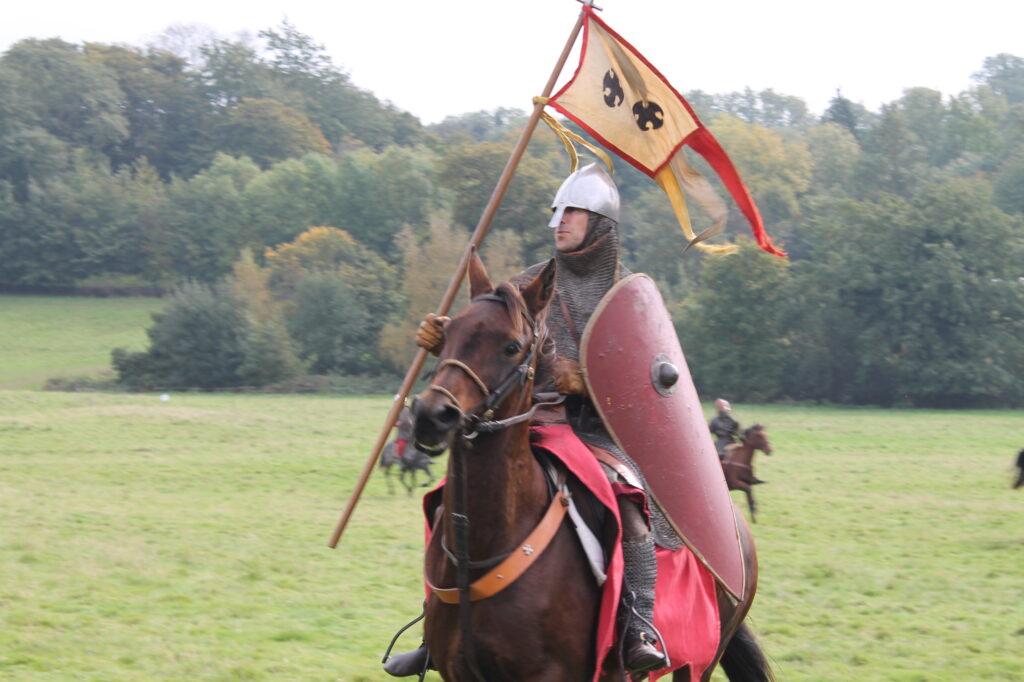After 1066

The Battle of Hastings brought the world of the old Anglo-Saxon nobility to a bloody end. Twenty years after the battle, when the Domesday Book, William’s inventory of the country was completed, Englishmen owned just five per cent of the country. William of Malmesbury (c.1095 – c.1043), an Anglo-Norman monk and chronicler, wrote that “England has become the dwelling place of foreigners and a playground for lords of alien blood. No Englishman today is an earl, a bishop or an abbot.”
The Anglo-Saxon nobles who survived the invasion and William’s brutal supression of the rebellions of the next decade went abroad. Exiled Englishmen fetched up all over the old North Sea world. But some went further, all the way to Byzantium. With so many battle-trained exiles looking for employment, the Emperor’s Varangian Guard, which had previously been manned by Scandinavians, became a largely English unit.
They left behind an England where it seemed that the language might change as completely as land ownership. The new Norman kings spoke French and Latin and made little attempt to learn the language of their subjects. However, Henry I, the third in the line of Norman kings, began a revival in English and English customs that might have led to early reconciliation if it was not for his lack of a male heir. Henry designated his daughter, Matilda, as ruler but Stephen, William’s grandson, wanted the crown for himself. The ensuing 20-year civil war caused such destruction that it was called the Anarchy and, the Chronicle lamented, “Christ and his saints slept.”
But at the more local level, contacts between the 8,000-odd Norman settlers and the native English slowly improved. Intermarriage had become common by the early 12th century. While there were no English abbots, Englishmen served as priors in monasteries and monks worked to improve relations between the two peoples. And when the Anarchy ended and Henry II ascended the throne at the end of 1154, things had changed. A century after Hastings, English had become again the national language, although the Old English names were largely lost. The English were now a race of Roberts and Johns and Williams, rather than Æthelwins and Œthelwalds and Oswalds.
By 1170, Richard fitz Nigel could write, “In the present day, the races have become so fused that it can scarcely be discerned who is English and who is Norman.” The conquerors had, in the end, been assimilated.
0 Comments